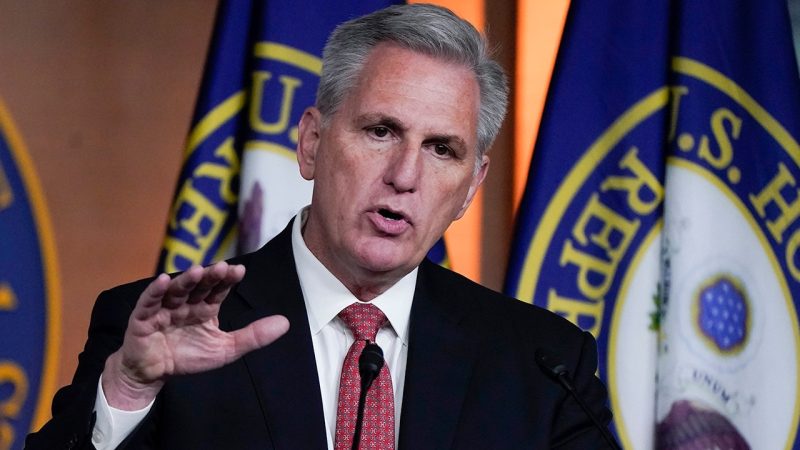There are several things to watch in Tuesday’s Speaker’s vote. In fact, the first thing to look for comes even before the vote for Speaker begins.
The House will initially take a roll call vote to determine how many members-elect are present. The House breakdown should be 222 to 212 with 434 total members. The key is to watch how many members are absent. That will give us a sense as to how big the House ‘universe’ is for the Speaker vote.
During the Speaker’s tally, House reading clerks will call the roll of the House alphabetically. Each member who wishes to cast a ballot must verbally announce the surname of a candidate.
We are not expecting House Minority Leader Kevin McCarthy (R-CA) to get the votes to be Speaker on the first tally. Several of McCarthy’s opponents will likely vote for Rep. Andy Biggs (R-AZ). Also, watch to see how many other persons receive votes by name or if lawmakers vote present.
The more votes by name for someone OTHER than McCarthy hurts his bid.
Keep in mind we do not know the magic number McCarthy (or any other successful Speaker candidate) requires until we have a sense of how many members-elect cast a ballot for someone by name. But the more people who vote someone by name other than McCarthy spells a problem for the California Republican.
At the end of the roll for Speaker, it will take the tally clerks/tellers a few moments to cross-check their numbers. So, don’t be surprised if we have a delay of 10 or 15 minutes after the last member-elect votes. Also, it’s possible that Clerk of the House Cheryl Johnson might keep the vote open much longer than usual as Republicans horse trade and try to get members on board.
That said, Johnson is not compelled to show any deference in terms of time or extending the vote. The rule dictates that the House vote again immediately on Speaker – and continue voting until there is a Speaker. Johnson could order another vote immediately. But we are into uncharted territory at this stage.
It’s also possible that anyone in the House call for a recess or the House vote to adjourn. The House could then go out of session for a while. It has been 100 years since the House last went to a second vote for House Speaker. So, they are kind of making it up as they go along here.

